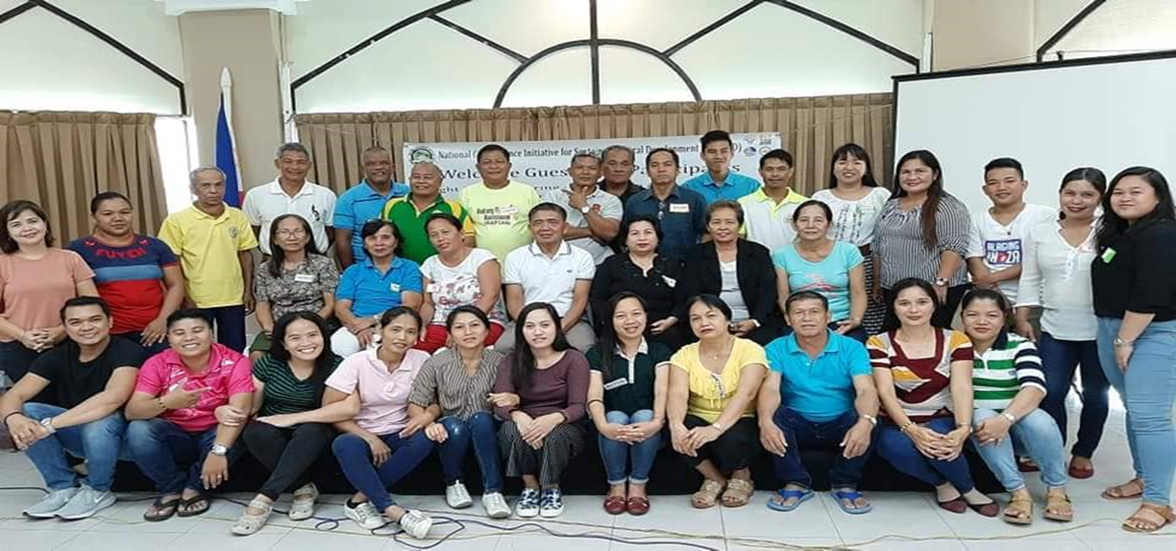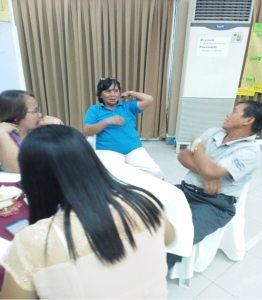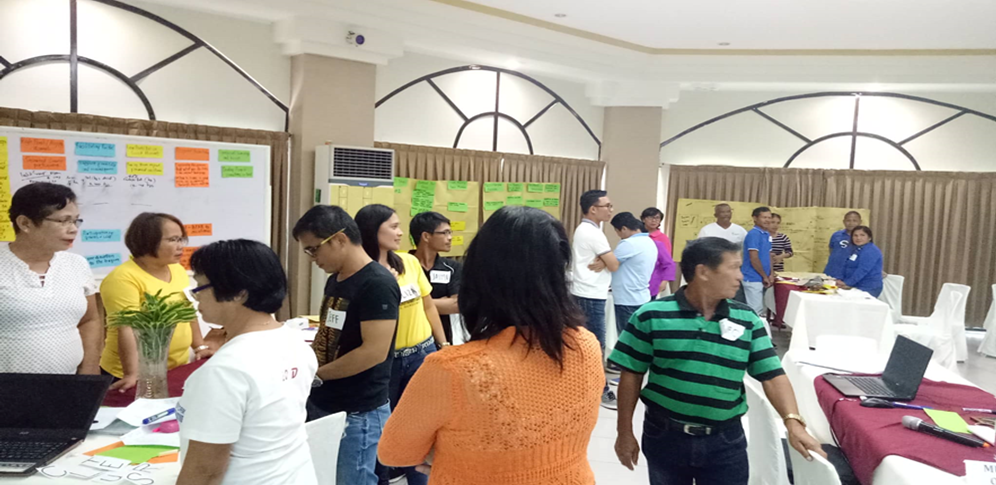
For years, the farmers in the Carood Watershed convergence has been looking for a solution to uplift their situation. Problems along the value chain has persisted since the time they started farming. So, the question is what could emancipate them? The persistent complaint of low buying price of agricultural commodities and the lack of market continued to hound the farmers for years.
Lately, the National Convergence Initiative for Sustainable Rural Development (NCI-SRD) through the Regional Convergence Initiative for Sustainable Rural Development (RCI-SRD) 7 funded the Carood watershed convergence activities. A series of training-workshop entitled, Agro-enterprise Clustering Development Approach in the 2nd and 3rd quarter of 2019 has been conducted. It was during this training when the participants saw a silver lining to liberate them from their current situation.
Marina Olandria, a seaweed farmer and 62 years old from Panas, Candijay, has been dependent on a trader who buys her fresh seaweeds. Though she is a member of the Panas, Cambuyao, Pangpang fisherfolk Association (PCPFA) which has around 100 members since 2002, they never agreed to sell in bulk, and study the market chain that will give them a good price. A subjugating factor she observed among the seaweed growers in her barangay is the loan that the farmers avail from a private company with an interest rate of 2.5% per month for 6 months. According to Marina, the loan entangles the farmers to a vicious cycle of dependence on credit.

Seaweed production is highly seasonal, when there is flooding or when a disease strikes called ice-ice, production can’t be successful.
That’s the reason why Marina thinks that the knowledge she gained from the three courses is worth it for the betterment of her business. What she is currently earning at P70 per kilo for her seaweeds could be sold at P86 per kilo in Cebu market. That is a difference of P16 per kilo of her ¼ hectare seaweed farm and could even increase if she wishes to expand her area.
The teaching on partnership building, site selection and cluster formation made Marina realized that even if she’s a member of a seaweed organization, they did not move as one group in marketing their product — a weakness that can easily be ensnared by unscrupulous traders. She learned that in scouting for a market, they first have to assess the supply of the group before going into a contract. Being taught in studying the market chain is essential as a farmer because she learned to compare which market offers them a better price for their seaweeds.
Marina added that the value of commitment is important for them to sustain their market. Crafting the agro-enterprise plan and mobilizing it helped them value the production and supply plan.
Generally, the course taught the participants the value of creating a planting and harvesting calendar, and a product supply forecast–tools for an effective farmer-entrepreneur. The participants learned that the farmers are good producers, and that they have something good and competitive to offer to the market.
A week after the graduation, the RCI-SRD7 conducted a meeting to the participants of the Carood watershed convergence. Initially, they were pleased to hear that the Bureau of Jail Management and Penology is willing to buy directly from them. Aside from that, the Agribusiness and Marketing Assistance Division (AMAD) 7 will conduct a market-matching activity with the training participants to expand their market to the hotels and resorts in Panglao Island, Bohol.

A group of farmers in Pilar called the La Suerte vegetable growers were trained recently by the Lamac Multipurpose Cooperative. Fortunately, they got a contract to supply the outlets of two big food chain companies in the country.
With the learnings they had from the training, the farmers can have sustained enterprises and develop several value chains as opportunities arise thus, making them a progressive farmer-entrepreneur in the future. The Agro-enterprise clustering development approach is indeed a silver lining that could uplift them of their current situation.
